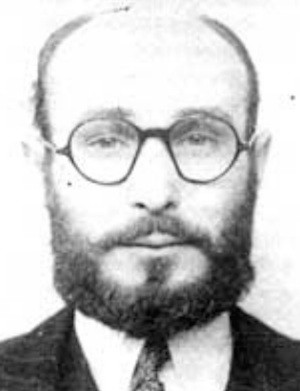Peter Fieldman
D-Day 1944: the largest invasion force in history successfully landed on the shores of Normandy to end the Nazi domination of Europe. But without the contribution of a self made, Spanish double agent, the outcome of the Second World War might have been different.

Juan Pujol García was born in Barcelona in 1912. He first experienced conflict during the Spanish Civil War joining the Republican cause. Rejecting communism, he defected to the Nationalists during the battle for the Ebro in 1938. However he lost faith with the Fascist regime and ended the war in prison. He was proud to have fought for both sides without firing a shot and at the outbreak of the Second World War with Spain neutral, decided to help the allies.
He walked into the British Embassy in Madrid offering his services but was turned down. Not deterred, he conjured up the idea of becoming a German agent. Impressed by a fascist Spaniard with a diplomatic passport, able to travel to and from the UK, the German intelligence service in Madrid jumped at the opportunity to use his services. Freidrich Knappe-Ratey, the German intelligence officer, gave him a rudimentary course in spying with codebooks, invisible ink etc, expenses, a code name – Arabel – and instructed him to go to London and recruit a network of spies.
The truth was that Juan Pujol was no fascist, carried a false diplomatic passport, had never been to England and spoke no English. He established himself in Lisbon and at the public library, from maps, tourist guides, time tables and cinema newsreels, learnt as much as he could about England. He started to feed the Madrid embassy with all manner of information, most of it factual but irrelevant.
Having managed to break the German Enigma cipher machine, the code breakers at Bletchley Park became intrigued by a mass of false reports being passed to the Germans. One about a nonexistent convoy en route to the Mediterranean led them to track down the mysterious person sending this data. Pujol was eventually located in Lisbon and this time he was not turned down.
He travelled to London, where, given the code name “Garbo”, after the actress, he began to work with Tomas Harris, a Spanish speaking British intelligence officer. Together they sent hundreds of letters to a Post Office Box in Lisbon where the Germans were overjoyed at having such a reliable spy in England. And it was not just one spy. Pujol had established a network of spies scattered across the country, only they never existed. To ensure credibility the messages sent were a mix of correct but unimportant data and occasionally important military details which were deliberately delayed and sent too late for the Germans to act. With his imaginary network of spies, Pujol could always blame one of his operators for delays or errors. The Germans were so impressed, Pujol was provided with the latest code ciphering devices, which were gratefully passed on to Bletchley Park.
At the beginning of 1944 the Germans needed Arabel – Pujol – to give them whatever information he could about the invasion they believed was being planned. Meanwhile “Operation Fortitude,” the code name for the plan to deceive the German High Command, was already in operation and Pujol played a major role in convincing them that the invasion would take place in the Dover straits, the shortest channel crossing, He and Harris were sending a stream of radio and written messages giving the Germans details about the army being massed in Kent. As part of the deception plan, realistic dummy inflatable tanks, artillery, jeeps, landing craft and armoured cars had been made and scattered across the countryside throughout south east England. German reconnaissance planes would detect a vast array of military equipment near Dover. To add to the deception the allies arranged for General Patton, known to the Germans as a key military figure, to tour the region. To ensure that the Germans would not realise they were being duped, messages were sent warning of the Normandy invasion but told that it was a diversion with the real invasion taking place in July or August. Hitler was convinced and despite General Rommel’s opposition, ordered that the major armoured divisions and troops were sent to the Pas de Calais where they remained for two months after the June 6 landings, allowing the invasion to succeed.
After the war, concerned for his safety, Pujol faked his own death in Africa before moving to Venezuela, where he opened a book shop in Caracas and having divorced his first wife, remarried and had three children.
Pujol’s vital role in the success of the D-Day landings was recognised and in November 1944 he received an MBE from King George V1. Six months earlier he had been awarded the Iron Cross for his services to the Reich, still convinced of his loyalty. He is believed to be the only person to have been awarded medals by both the Germans and British.
Four years prior to his death in Venezuela in 1988, Pujol journeyed to France on 6th June 1984 to visit the Normandy beaches and cemeteries to pay respects to the fallen.



